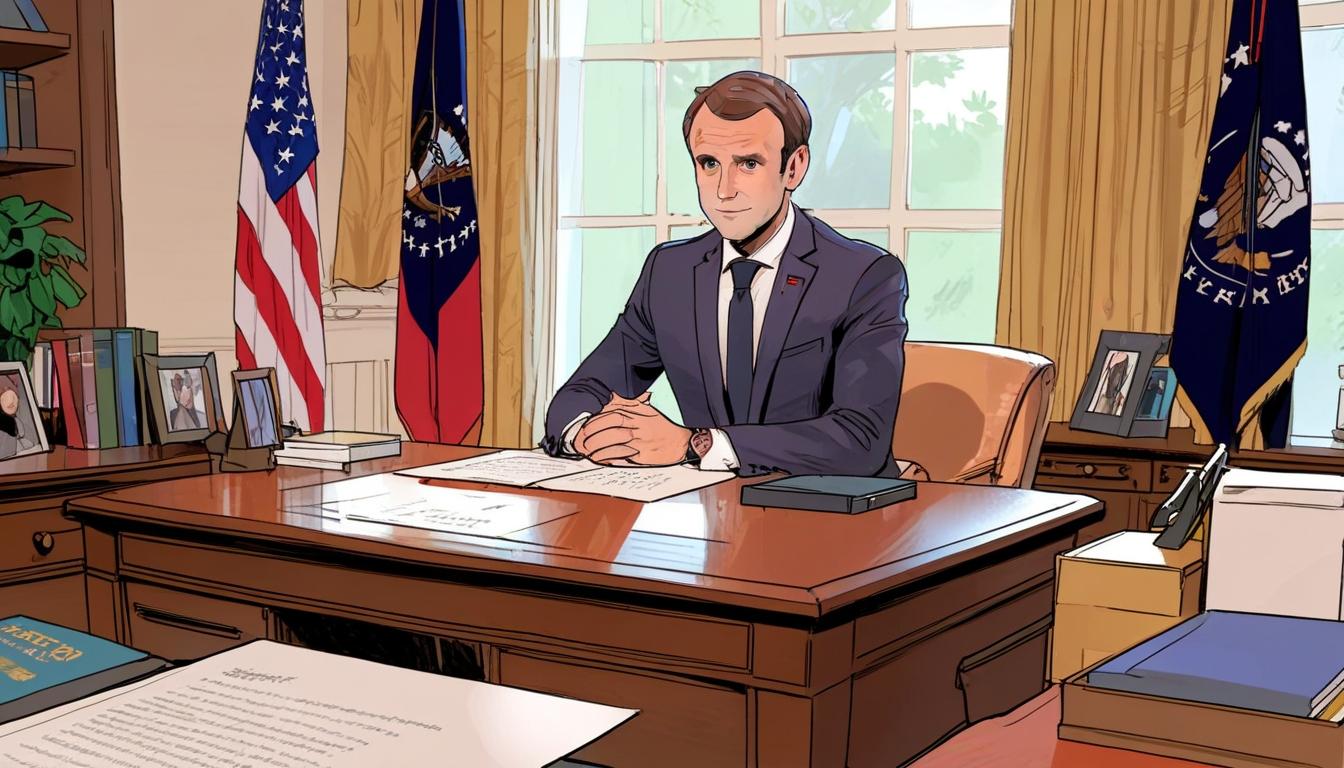Emmanuel Macron, the French President, faced a notable incident of diplomatic awkwardness during his visit to the White House on an important diplomatic day, which marked the third anniversary of the Russian invasion of Ukraine. Arriving in Washington, D.C., Macron was left without the customary greeting from the United States President, Donald Trump, who did not acknowledge him upon his arrival.
Footage from the event illustrated that Macron exited a black car and was compelled to enter the White House without Trump's presence to receive him. Compounding the situation, images revealed that during their meeting in the Oval Office, Macron was positioned uncomfortably on the corner of Trump’s desk while Trump maintained a spacious seat in the middle, an arrangement that some may view as symbolically significant.
Macron's visit aimed to address urgent issues surrounding Ukraine, as tensions rise in light of recent geopolitical challenges. Speaking to the press prior to the meeting, Macron expressed his intention to present strategic arguments to Trump, emphasising the necessity for the U.S. to adopt a firm stance against the Russian President, Vladimir Putin. "I will tell him: Deep down you cannot be weak in the face of President (Putin). It's not you, it's not what you're made of and it's not in your interests," Macron stated during a social media question-and-answer session.
In stark contrast to Macron's narrative on Ukraine, Trump has unsettled European allies by suggesting that Ukraine had initiated the ongoing conflict, a claim that diverges from the widely accepted understanding of the situation. The meeting was further complicated by the fact that Trump met with Polish President Andrzej Duda just days earlier, showcasing a diplomatic manoeuvre that echoes how Trump's approach has altered the U.S. stance on the war in Ukraine.
The visit highlighted broader discussions occurring among world leaders regarding strategies to support Ukraine amidst ongoing Russian aggression. Following Macron's discussions, British Prime Minister Keir Starmer is expected to visit the White House, having unveiled new sanctions against Moscow. In his address to Ukraine’s allies, Starmer noted that Trump had "changed the global conversation" around Ukraine, although aides later clarified this comment was meant to indicate a positive shift.
As European leaders, including Macron and Starmer, rally to provide more substantial support to Ukraine and bolster a European military coalition, the dynamics of international relations continue to evolve, underscoring the complex interplay of national interests and global diplomacy.
Source: Noah Wire Services
